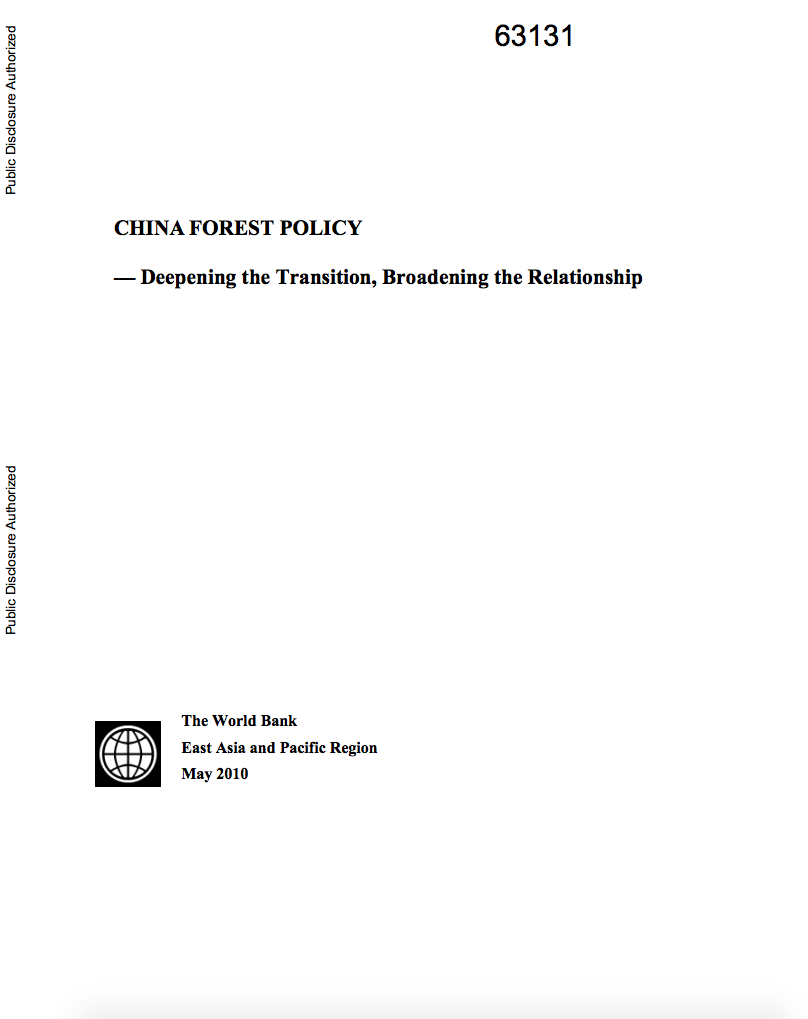The World Bank is a vital source of financial and technical assistance to developing countries around the world. We are not a bank in the ordinary sense but a unique partnership to reduce poverty and support development. The World Bank Group has two ambitious goals: End extreme poverty within a generation and boost shared prosperity.
- To end extreme poverty, the Bank's goal is to decrease the percentage of people living on less than $1.25 a day to no more than 3% by 2030.
- To promote shared prosperity, the goal is to promote income growth of the bottom 40% of the population in each country.
The World Bank Group comprises five institutions managed by their member countries.
The World Bank Group and Land: Working to protect the rights of existing land users and to help secure benefits for smallholder farmers
The World Bank (IBRD and IDA) interacts primarily with governments to increase agricultural productivity, strengthen land tenure policies and improve land governance. More than 90% of the World Bank’s agriculture portfolio focuses on the productivity and access to markets by small holder farmers. Ten percent of our projects focus on the governance of land tenure.
Similarly, investments by the International Finance Corporation (IFC), the World Bank Group’s private sector arm, including those in larger scale enterprises, overwhelmingly support smallholder farmers through improved access to finance, inputs and markets, and as direct suppliers. IFC invests in environmentally and socially sustainable private enterprises in all parts of the value chain (inputs such as irrigation and fertilizers, primary production, processing, transport and storage, traders, and risk management facilities including weather/crop insurance, warehouse financing, etc
For more information, visit the World Bank Group and land and food security (https://www.worldbank.org/en/topic/agriculture/brief/land-and-food-security1
Resources
Displaying 4306 - 4310 of 4907Economic Valuation of Development Projects : A Case Study of a Non-Motorized Transport Project in India
One of the major difficulties in doing
cost-benefit analysis of a development project is to
estimate the total economic value of project benefits, which
are usually multi-dimensional and include goods and services
that are not traded in the market. Challenges also arise in
aggregating the values of different benefits, which may not
be mutually exclusive. This paper uses a contingent
valuation approach to estimate the economic value of a
Togo - Reviving the Traditional Sectors and Preparing for the Future : An Export-Led Growth Strategy - Country Economic Memorandum
Togo is one of the smallest countries in
mainland Africa, with an area of 57,000 k
Natural Disasters and Household Welfare : Evidence from Vietnam
As natural disasters hit with increasing
frequency, especially in coastal areas, it is imperative to
better understand how much natural disasters affect
economies and their people. This requires disaggregated
measures of natural disasters that can be reliably linked to
households, the first challenge this paper tackles. In
particular, a methodology is illustrated to create natural
disaster and hazard maps from first hand, geo-referenced
China Forest Policy : Deepening the Transition, Broadening the Relationship
A pattern of forest area loss followed
by a period of reforestation is representative of the forest
transition process. Forest transition has been observed in
many countries and is a feature of the development process.
China reached its inflection point earlier and faster than
most other countries that have gone through the transition.
The report describes the success of reforms to forest
resource tenure in collective forest areas. These reforms,
World Bank East Asia and Pacific Economic
Update 2010, Volume 1 : Emerging Stronger from the Crisis
East Asia has recovered from the
economic and financial crisis. Largely thanks to China, the
region's output, exports and employment have mostly
returned to the levels before the crisis. Leading the global
economy, real gross domestic product (GDP) growth in
developing East Asia is poised to rise to 8.7 percent in
2010 after slowing from 8.5 percent in 2008 to 7.0 percent
in 2009. This report also identifies two common regional







